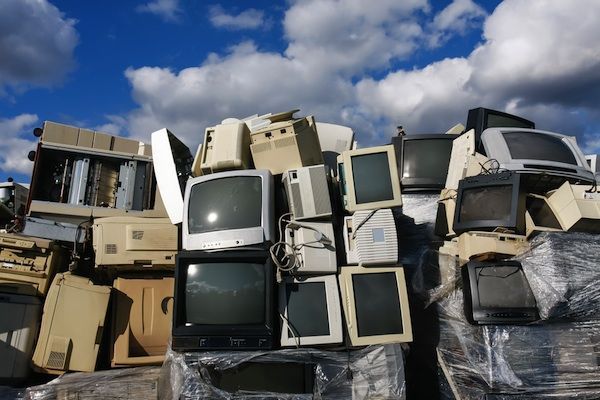
A new report by the International Labour Organization (ILO) focuses on the potential of co-operatives in addressing the problem of electronic waste. Co-operatives play a key role in formalising the informal economy, including workers in the waste management sector.
The report notes that there is a growing number of co-operatives and social and solidarity enterprises of waste-pickers and recyclers. This could help informal workers obtain higher prices and a higher income. Through a common capital fund, co-operatives can invest in the purchase of technological and protective equipment, pre-processing machines and uniforms. At the same time, co-operatives can support their members in accessing financial services or create their own financial co-operatives.
The ILO reveals that electrical and electronic waste (e-waste) is currently the fastest growing waste stream. According to the report, most of the world’s e-waste ends up in developing countries to be treated by informal workers, which run the risk of getting contaminated. The treatment process of e-waste is dangerous to human health as well as the environment.
The document adds that waste management co-operatives tend to increase their members’ awareness of workers’ rights and occupational health and safety.
The report includes various case studies of waste management co-operatives. One of these is SWaCH (Solid Waste Collection and Handling) co-operative in Pune, India. Set up by members of a waste pickers’ union, the co-op has now 2,300 members and provides services to 400,000 homes in the city. SWaCH works with the municipality and its members have access to public health care for their children. The co-op also provides uniforms, basic protective equipment and eight-hour working day schedules for its members.
In Brazil the National Movement of Recyclers includes 600 co-operative members, providing jobs for 80,000 recyclers who collect 90% of the country’s recyclables. Recognising their importance, the government set out a National Solid Waste Policy in which it encourages municipalities to integrate co-ops into solid waste management systems.
According to the report, public authorities can formalise the sector by setting up facilitating policies to encourage informal collectors, traders and recyclers to organise and form co-operatives and other SSE enterprises.
Photo: electrical waste for recycling or safe disposal, © Copyright: Pedro Miguel Sousa




